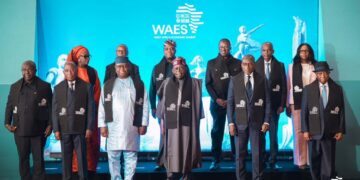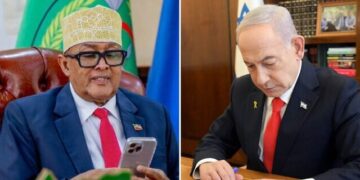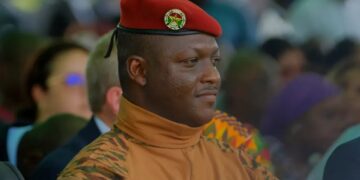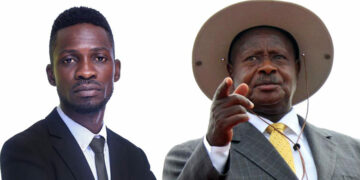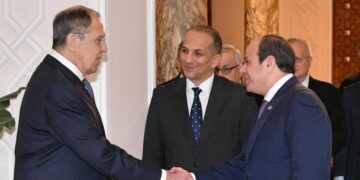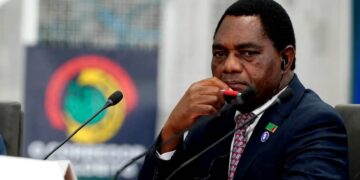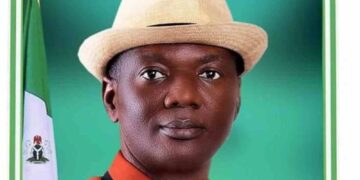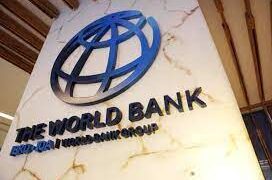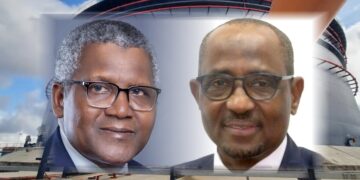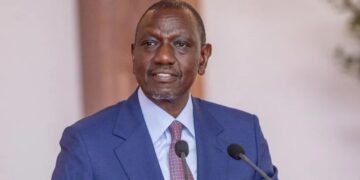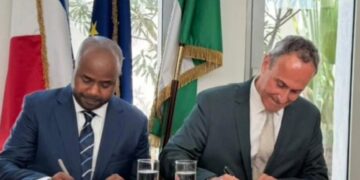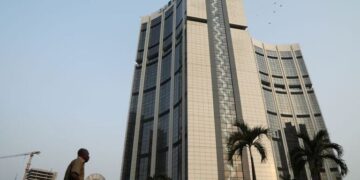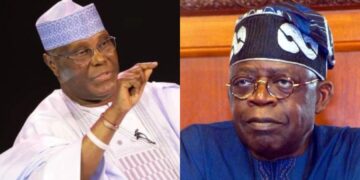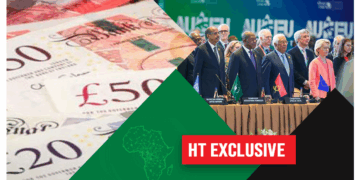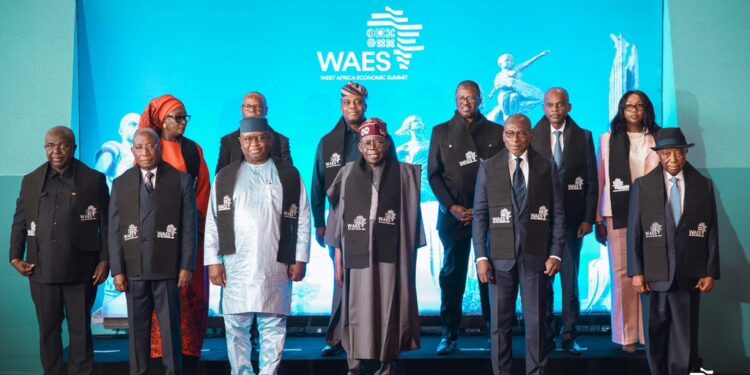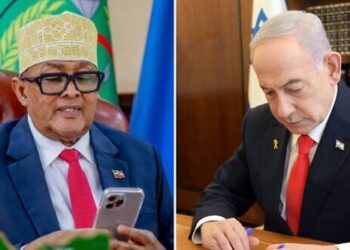By Emmanuel Nduka
The inaugural edition of the West Africa Economic Summit (WAES 2025) held in Abuja, Nigeria’s capital, from June 20 to 21. Gathered at the Bola Ahmed International Conference Centre were a powerful mix of regional leaders, top government officials, global investors, innovators, and policymakers, united by a shared vision — to chart a concrete and collaborative path towards sustainable economic development across Western Africa. Presidents Julius Bio (Sierra Leone), Patrice Talon (Benin Republic), Joseph Boakai (Liberia) joined Nigeria’s President Bola Tinubu, while Ghana, Senegal, Gambia, Guinea Bissau sent in representatives.
The two-day Summit was momentous and result-driven, as West African leaders spoke passionately in one voice in charting a new and sustainable economic path for the sub-region.
Here are a few key takeaways from the event:
NIGERIA, BENIN SIGN BILATERAL AGREEMENT
A highpoint of the WAES 2025 was the signing of an agreement between Nigeria and the Republic of Benin on Saturday, to deepen bilateral integration and serve as a model for broader regional cooperation within ECOWAS. Nigeria’s Minister of Industry, Trade and Investment, Dr. Jumoke Oduwole and Minister of State for Foreign Affairs, Ambassador Bianca Odumegwu-Ojukwu, signed the agreement on behalf of Nigeria, while Benin’s Minister of Industry and Trade, Shadiya Alimatou Assouman, and Minister of Foreign Affairs and Cooperation, Shegun Adjadi Bakari signed for Benin. The signing ceremony commendably signaled the rise of women in leadership in Africa to the applause of guests, as out of the four ministers on stage to sign, three were women, and only one was a man, a testament that African women have come of age in leadership.
PRESIDENT TINUBU URGES END TO EXPORT OF UNPROCESSED MINERALS
West Africa must now end the long-standing practice of exporting its raw minerals without processing them locally to derive more values, Tinubu who stepped down as Chairman of ECOWAS Authority of Heads of State and Government, said in his speech on Saturday. He said the step must be taken to end the “pit-to-port” dependency. “We must turn our mineral wealth into domestic economic value, jobs, technology, and manufacturing. To be resource-rich is not enough, we must become value chain smart and invest in local processing and regional manufacturing,” Tinubu said, as he challenged African leaders to move from rhetorical declarations to concrete deals.
Speaking in same posture with Tinubu in a pre-recorded speech in Marrakech, Morocco in April where she was honoured with the African Lifetime Achievement Award, World Trade Organization Chief Ngozi Okonjo-Iweala told African leaders that the continent faces “an increasingly challenging trade landscape” as the United States raises its walls and donor aid plateaus. Yet, she insisted, the same crisis can unlock growth if Africa “enormously explores its abundant green energy potential to power industrial activities” and “mobilizes our resources” instead of exporting them raw.
GHANA CALLS FOR END TO DEPENDENCY ON FOREIGN AID, URGENT TREATING OF SINGLE TRADE CURRENCY
Thomas Ampem Nyarko, Ghana’s Minister of Finance who represented President John Dramani Mahama, urged Africa to work towards ending its over-reliance on foreign aid, and commit to addressing the modalities for a single trade currency in West Africa. “We can either continue to thread the route of dependency, or be courageous enough to end it”.
He called for policy consistency, stability, and a practical approach to constitutional order to strengthen regional cooperation, a pathway he believes will largely reduce over-reliance on the western world for economic and security support.
“Trade cannot flourish where democracy is in retreat. Investment does not land where governance is broken. The recent wave of instability and military takeovers in our region is not just a security concern—it is an economic emergency. We must defend democracy as a prerequisite for prosperity.
“Let West African leaders recommit to constitutional order—not as an abstract ideal, but as a practical requirement for growth. We cannot unlock trade while our region is locked in conflict,” Nyarko quoted the Ghanaian leader as saying.
BENIN’S TALON URGES AFRICAN MINISTERS TO IMPLEMENT PROVISIONS OF BILATERAL AGREEMENT WITH NIGERIA, RUES CRISIS IN ECOWAS
President of Benin, Patrice Talon hailed the newly sealed bilateral agreement with the neighbouring Nigeria, describing it as signal of a bold move toward real, actionable regional integration.
“President Tinubu and I have agreed on full integration between Benin and Nigeria. The responsibility now lies with our ministers to implement it. Benin and Nigeria are more than twins—we are the same people. Let us show the region that integration is possible,“ President Talon said.
President Talon also called for urgent reforms to rescue West Africa’s stalled regional integration, describing the Economic Community of West African States (ECOWAS) as “in crisis”.
“ECOWAS is a perfect example of regional integration. Unfortunately, our ECOWAS is in crisis right now,” President Talon said. He cited the West African Gas Pipeline, which was designed to enhance regional energy cooperation, as an example of failure due to administrative bottlenecks.
He further reeled out the cost of failure of regional cooperation among West African States. “It is ridiculous. This failure of regional cooperation wastes resources and undermines integration,” he said, highlighting that as a result of these delays, Benin has had to source gas from faraway Qatar via a floating storage and regasification unit (FSRU).
“We invested heavily in this infrastructure. But it is not functioning as expected. Unless we act decisively, I’m not confident it ever will,” he decried.
SIERRA LEONE MAKES CASE FOR UNLOCKING AFRICA’S POTENTIALS
For President Julius Bio, he preached that Africa’s huge human and natural resources must be strategically harnessed to unlock its full potentials.
Bio called for improved collaborations, strategic alignments, and added his voice to the call for a single regional currency to ease the business environment in West Africa.
OKONJO-IWEALA PUSHES FOR REDUCTION OF TRADE COSTS IN INTRA-AFRICAN TRADE
In her pre-recorded address, the Director-General of the World Trade Organisation called for cost reduction in intra-African trade to boost sub-regional value chains, attract investment, boost incomes, and reduce market volatility.
Okonjo-Iweala, a former Nigerian Minister of Finance said a united ECOWAS approach, rather than fragmented national efforts, is key to creating competitive and scalable economies. According to Dr Okonjo-Iweala, the region’s potential lies in its digital and green capabilities, supported by a growing population of educated youth, tech startups, and renewable energy sources.
She emphasised the importance of leveraging these strengths to develop manufacturing and processing capacity across sectors. “If each of our countries works alone, it is unlikely that we will be able to build efficient value chains that attract the investment we need.
”However, if ECOWAS can think in terms of sub-regional value chains, our markets and scale economies become big enough to attract investors. The pharmaceutical industry is one promising sector, and the COVID-19 pandemic experience of being bumped to the back of the queue for vaccines was a reminder of why the continent needs to produce more pharmaceutical products at home. Senegal, with its Institut Pasteur de Dakar, is a potential hub for vaccines,” Dr Okonjo-Iweala said.
LIBERIA’S BOAKAI TASKS ECOWAS TO KEEP ITS DOOR OPEN TO JUNTA-LED NATIONS
President of Liberia, Joseph Boakai in his remarks urged West African leaders to maintain open lines of dialogue with Niger, Mali, and Burkina Faso that are currently led by the military, stressing that the door to ECOWAS must remain open to the countries that have exited the bloc.
Boakai called for engagement, reconciliation, and inclusive regional cooperation, especially with states that have “unfortunately” taken divergent paths.
“At the 66th Ordinary Session of the ECOWAS Authority, Liberia called for renewed hands with member states who have taken divergent action.
“Today, I wish to echo that appeal: we must keep the door open for engagement and reconciliation, especially to our sister states that have unfortunately exited the community,” Boakai said.
He concluded that the provisions of the African Continental Free Trade Area (AfCFTA), has the potential to transform Africa towards sustainable development.
IT’S TIME FOR ECOWAS TRADE LIBERALIZATION SCHEME — ODUWOLE
Minister Oduwole in her comment said time has come to put initiatives such as the ECOWAS Trade Liberalisation Scheme (ETLS) to lower tariffs and the Common External Tariff (CET) for unified trade policies.
She expressed concern over the low level of trade among ECOWAS member countries, describing it as a challenge that must be addressed to unlock the region’s economic potential.
She also expressed Nigeria’s readiness to work closely with neighbouring states to fast-track the implementation of preferential tariff regimes under the African Continental Free Trade Area, even as she urged participants, including private sector leaders, to leverage the summit to forge new partnerships and strengthen the sub-region’s trade architecture.
“The vision of one market is not just an aspiration, it is a necessity,” she said, emphasising the need to eliminate tariff and non-tariff barriers impeding the free movement of goods and services within West Africa.
The Nigerian Minister of Industry, Trade and Investment assured the gathering that “The Federal Government of Nigeria has been fully committed to the ECOWAS trade liberalization scheme and the ECOWAS Common External Tariff. We are also fully committed to working with member states and neighbours to accelerate the implementation of preferential tariff regimes on the African-Continental Free Trade Area”.
AFRICA’S CREATIVE TALENT WILL BE CRITICAL IN TRANSFORMING AFRICA – TUGGAR
In his blistering opening remarks on Day 2 of the Summit, Nigeria’s Minister of Foreign Affairs Amb. Yusuf Tuggar affirmed that the creative talents and ingenuity of African youths will be critical in transforming the continent.
He noted that while Africa has the capacity, a reorientation of actions and strategies is imminent, adding that leaders must do more to markets accessible. “Our job now is to find the best way to help deliver goods and services”.
BURKINA FASO, MALI, NIGER ABSENT
Visibly absent at the event were junta-led Burkina Faso, Mali and Niger. The three West African nations despite receiving invitations were absent. Last week, Nigeria’s Foreign Affairs Minister confirmed to journalists at a briefing that President Tinubu sent out special invitations to the junta leaders. .
The Sahel nations exited ECOWAS on January 29, 2025, following a year-long notice period after announcing their decision to leave the regional bloc.They have since formed a trade and security cooperation called Alliance of Sahel States (AES).
The withdrawal was preceded by mounting diplomatic tensions, but Nigeria’s Minister of Foreign Affairs, Ambassador Yusuf Tuggar emphasised that despite their departure, diplomatic relations with these nations remain intact, particularly through the Nigeria-Niger Joint Commission. “We have invited them,” Tuggar said, explaining the continuing ties between Nigeria and its Sahelian neighbours.
